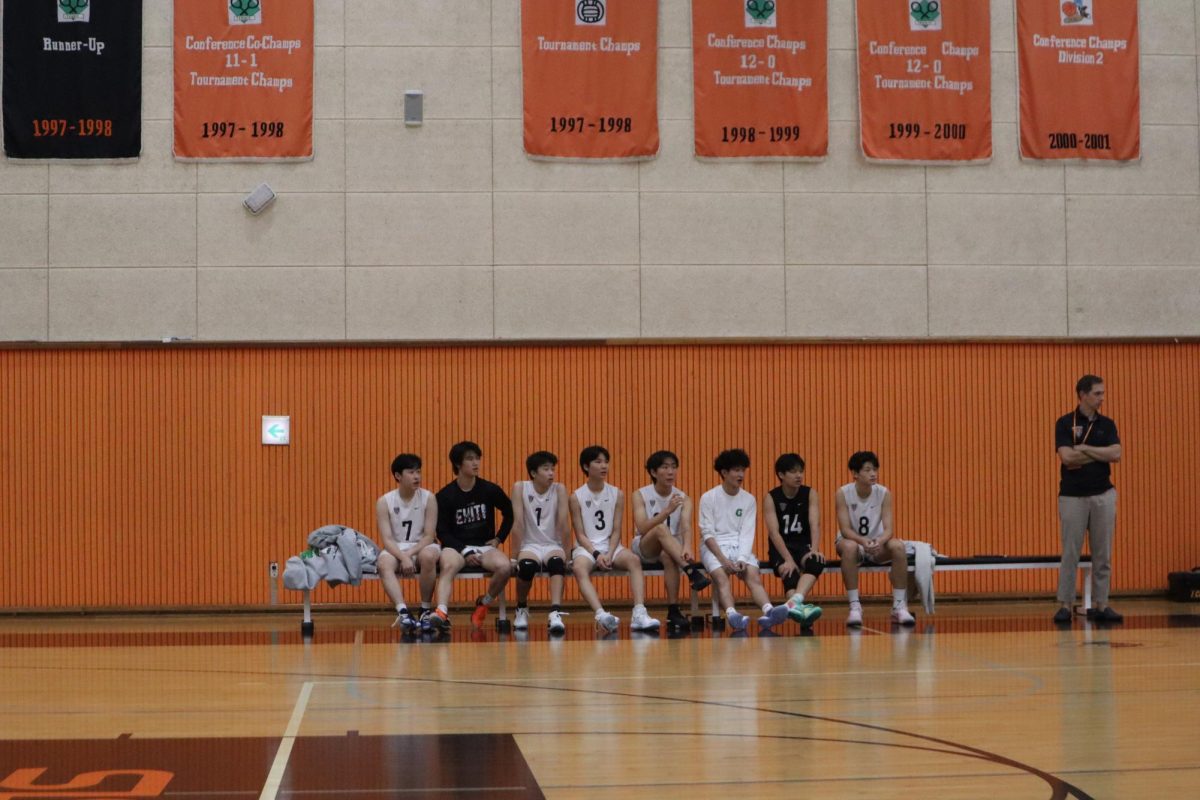Behind every star in the sports world, hundreds, if not more, of bench players do not receive the attention they deserve. As much as historic players, such as Lionel Messi in football or Michael Jordan in basketball, are glorified for their talents, their accomplishments would not have been possible without the aid of seemingly minor, less appreciated players.
In high school, the efforts of these players are more admirable because they sacrifice personal time even if they aren’t the key members. High school student-athletes need to balance their personal work and sports, and even at international schools like SIS with a greater emphasis on academics, bench players are devoting themselves voluntarily, despite not being in the spotlight.
“A lot of the time, the bench players do not get attention,” Dominic Hahm (11), varsity volleyball player, said. “Usually we stay on the bench through the majority of the game and the audience often do not recognize us. Still, we continue to strive for improvement out of passion for our sport.”
As young athletes, many want to be the star of their own teams, such as being a starting member of a basketball or soccer team, but not everyone can be the main player. A limited number of players on the team will truly participate in games. So what makes these bench players so important?
Student-athletes who do not receive much play time still contribute to the team behind the scenes. During practices, these athletes can boost competition and be helpful partners for starting players. In-game, they contribute by maintaining team morale and alleviating pressure for starting players who can rely on the backup players to substitute in case of an injury or emergency.
Furthermore, bench players are good teammates for starting players. For many sports, bench players and starters practice together and help each other improve. “On our JV basketball team, the bench members and the starting members often played against each other,” Ryan Bae (10), JV basketball player, said. “The bench players add enough people to the team to run new drills and games that apply to in-game improvements.”
Participating in different matches throughout the season, starting members can feel immense pressure. Simultaneously, some players can worry about their injuries being critical to team records. The inclusion of talented rotational players decreases pressure on the starting members. With a strong bench unit, starting members can play to their fullest potential without anxiety about an injury or any other individual failure.
“In my experience on the volleyball team, having a strong bench can promote emotional security,” Joshua Hwang (12), varsity volleyball captain, said. “Sometimes, as players, we are prone to worry about getting injured or missing a game because we do not want to negatively influence the team, but with a capable bench, players can feel less pressure through the games.”
While these attributions apply to pro and amateur leagues alike, in high school, bench members have a greater role. On top of the aforementioned roles, bench players inherently fill the role many varsity teams lack: trainers and analysts. On high school teams, bench members provide direct feedback and observations for the starting members and help the coaches observe and understand how other teams play.
However, what makes high school bench players exceptionally commendable is their mentality, putting in immense effort and adding value to a team without expecting to receive attention, even amidst the heavy high school workload. Perhaps it is natural to desire a starting position, but instead of being embarrassed as a bench player, these athletes continue to work diligently, both in their sport and academics.

